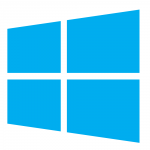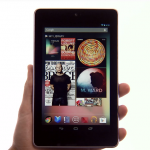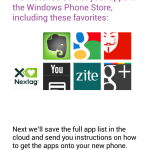Windows Blue Public Preview arrives end of June

That's the word late today from Microsoft. The next version of Windows will be available, as a preview, during Microsoft's BUILD developer conference June 27-29 in San Francisco.
To ship this year, as the company plans, the preview would need to be brief, with release to manufacturing ideally coming by end of August latest. PC makers generally need four to six weeks of testing before qualifying final images. That makes the timetable tight to get Windows Blue on holiday 2013 PCs.
100M Windows 8 licenses is NOTHING

Colleagues Mihaita Bamburic and Larry Seltzer both have stories today about Microsoft's newest sales milestone. They make valid points in "Windows 8 is such a failure Microsoft sells 100M licenses" and "You wish you could fail like Microsoft". However, 100 million is less than you might think and represents Windows 8's failure.
Meanwhile, the announcement is Microsoft's attempt to use seemingly good news to admit failure, by softballing step-backwards changes coming with Windows Blue.
I find this Audi ad to be 'highly illogical'

Regular readers know that I'm a sucker for good advertising. Audi's "The Challenge" is classic, pitting the new and old Spocks (Leonard Nimoy and Zachary Quinto) against each other. Surely the geeks, especially old-timers like me, will appreciate the inside-Star Trek humor. If you're a Trek fan of long vintage, the video is a treat.
I laughed when Nimoy started singing the Bilbo Baggins song. I actually owned that album in high school. William Shatner (aka James T. Kirk) and Nimoy both released records during the 1970s, when Star Trek was in syndication and before the series' revival on TV and movie theater screens. Geeks and Trekkers, this commercial will be among the best two minutes forty-five seconds you'll spend today.
Gmail breaks iOS chains

Yesterday (yeah, yeah, I'm late), Google released a stunning new version of Gmail for iPad and iPhone. I tried to write this story several times on May 6, but the newsroom was short-staffed, keeping me extra busy. Vacations, bank holiday in United Kingdom and Orthodox Easter Monday just about emptied BetaNews. So, please, pardon this belated story about the great Google escape.
What a wild one, too. Control-freak Apple uses Safari to keep developers like Google in check. Especially such a rival that invades iOS with a remarkably rich set of apps tightly tied to myriad web services. So Gmail's sudden liberation is quite surprising. Links now go to installed Google apps -- gasp, Chrome, Maps and YouTube -- rather than opening Safari. Chrome linkage really is a shocker, and all the more so with Google kissing WebKit to the wind in favor of its own browsing engine. Expect it in the Chrome stable channel soon.
Creative Cloud is Adobe's future (and yours, too)

No one rightly can accuse Adobe of playing the ostrich, digging in and pretending the cloud isn't changing the market for desktop software. The developer of popular publishing tools like InDesign and Photoshop takes huge risks that will either make or break future revenue. A year ago, Adobe unveiled the Creative Cloud subscription service. Today, in Los Angeles, the company rebranded CS suite as CC and moved all future features, updates and versions to the cloud subscription service. You want new Photoshop, Adobe will take your money monthly, baby.
I cannot understate the risk taken here, as Adobe delivers double-whammy to customers. Changing an iconic brand is trouble enough -- how people pay and what for, even more so. But the CC (for Creative Cloud) also demarks change, break from the old model for the new. With risks come rewards.
Tablets devastate laptop market

The white box battle is on, and laptops are losers. The big trend in tablets isn't iPad, contrary to public convention, but non-big-brand slates, which account for one-third of shipments, according to NPD DisplaySearch. Their success is good for Android, bad for Apple and worse for notebooks.
The early DOS/Windows PC market succeeded largely because of clones (like those from Compaq) and white label/box manufacturers and build-your-own enthusiasts. BYO isn't a tablet trend, but white box is, and its greatest impact is growth markets PC manufacturers count on -- or at least did.
Tough luck Apple, non-big-brand tablets account for one-third of shipments

Apple's supremacy as tablet market leader may be even shorter lived than previous analyst forecasts suggest. Already, Android topples iOS share, and there is simple catalyst: White-box slates accounted for one-third of shipments last year -- a level NPD DisplaySearch predicts will continue in 2013 and beyond.
Android is the big beneficiary of the trend. In third quarter 2012, shipments exceeded iOS models, according to IDC. During first quarter this year, green-robot slates took 56.5 percent market share. At this pace, contrary to analyst predictions just a year ago, Android does to iOS in tablets what it did in smartphones -- take early leadership away from Apple.
You can have iPhone 5, I'll take HTC One

Anyone moving up from a feature phone to smart one and considering iPhone 5 should look at HTC One. From a design perspective, both stand out for mostly metal enclosures, and they share similar design aesthetics. On T-Mobile USA, HD voice is available for both phones, too. Beyond that, their functionality couldn't be more different, because of screen resolution, physical size and overall interaction -- the latter more about operating systems than anything else.
I probably would chose the One over S4 but haven't used the Samsung. I reviewed iPhone 5 in September and one is in process for the HTC flagship. Simply stated: One is the best smartphone I have ever used. The device is so beautiful, the display equally so, that I want to hold and caress the device. Often. Social and news UI BlinkFeed changes how and how often I use a smartphone. More. More. More. The smartphone makes me happy in a way not since the original iPhone nearly six years ago.
Declare DRM freedom!

Oct. 10, 2007 is the day I threw off the chains locking my music. I purged the last DRM-protected file from my personal catalog -- and not by stealing. I purchased every track, and getting them Digital Rights Management-free wasn't easy six years ago. The base collection started from CDs. The problem: Songs purchased from iTunes, starting in April 2003. Later, Apple offered facility to remove copyright restrictions. Meanwhile, I repurchased some tunes, or just did without them.
But chains remain. Every video purchased or rented for download is DRM-protected. Far worse are ebooks. There, the unsung hero -- your advocate and champion -- is JK Rowling. In late April 2012, she released the entire Harry Potter series as ebooks, DRM-free, baby. Rowling is more than a hugely successful writer; she stands up for readers, too.
Nexus 7 lifts ASUS to third place

So much for Apple's tablet reign that analysts stoutly stood by even just months ago. Android kicks ass, crushing iOS shipments during first quarter, according to IDC. Among the top four, the fruit-logo company posted the lowest year-over-year growth (65.3 percent), and considerably less than the overall market (142.4 percent). Meanwhile, the company's market share fell by 18.5 points to 39.6 percent.
Among tablet manufacturers, Apple is market leader, with the question being for how much longer. Samsung share rose 282.6 percent -- ASUS even more (350 percent). Strong Nexus 7 shipments pushed ASUS past Amazon to take third place. ASUS' challenge and opportunity could be Google I/O, where the tablet launched last year and new model is rumored for the event starting May 15. Challenge is maintaining shipments during product transition; opportunity is capitalizing on new sales.
Google preps 'packaged apps' for Chrome stable channel

I/O starts two weeks from today, and Google wastes no time whetting developer interests. Yesterday, the search and information giant revealed new Google+ Sign-In benefits. Today there are changes regarding "packaged apps". Surely the big stuff will wait for the keynote, which takes place on a single day this year, but expect more like last two days beforehand.
"Starting today Chrome packaged apps will be available in the Chrome Web Store for anyone on Chrome's developer channel on Windows and Chrome OS", Amanda Bishop, Google product manager, says. "You will notice that the App category now contains only the new Chrome packaged apps. A new category, called Websites, contains all existing hosted apps and legacy packaged apps". She tempts me to change Chrome channels, but I'll wait. And you?
How much is too much to pay for coffee with Tim Cook?

Last week, I scolded colleague Mihaita Bamburic for writing old news -- charity auction for coffee with Apple's CEO. When I saw the item, someone offered $50,000 for 30 minutes with Tim Cook. About 24 hours later, when Mihaita posted: $180,000. Now, after 84 bids and 13 days to go, the number is $600,000. That bid, placed five days ago, looks like as much as anyone will pay.
I know that Apple products are notoriously pricey, but there is something simply unfathomable about paying so much for a cup of brew with Cook. No disrespect to him, but I could see this kind of cash to sit with Steve Jobs, who isn't available for obvious reasons. The winning bid (so far) is worth $20,000 a minute. The cash does go to charity. But really, pay $333.33 per second?
Expect employers to make you pay for devices, even if you don't want to

Here's a question for you: Is a company-provided device a benefit? You don't pay for hardware, software or service but might get older gear as hidden personal cost. I ask, because if Gartner is right, you'll soon pay, whether or not you want to. A survey of CIOs finds that 38 percent of companies plan to stop providing employees with devices by 2016. Wait a bit before reading on and think about what that really means.
"We're finally reaching the point where IT officially recognizes what has always been going on: People use their business device for nonwork purposes", David Willis, Gartner vice president, says. As someone working from home full time since May 1999, I must confess to rarely using company-issued computers or other devices. But that was my choice, and one often not supported by IT departments. Now, for many workers, there will be only choice of bringing their own.
Microsoft releases Switch to Windows Phone, but you won't want to

Well, it's May 1 somewhere, which perhaps explains why Switch to Windows Phone popped up on Google Play tonight with the date. The concept is simple: Microsoft tries to ease the transition between platforms, or at least help evaluate if such move is workable. But the app-matcher comes up short and can't resolve something more fundamental: People with money invested in apps won't be quick to rebuy them elsewhere.
StWF is easy enough to use once installed; letting it scan and match on my Nexus claims to match 85 percent of the Android apps. But like most of the people reviewing the app, there's no way I see to view the list. Could it be the app posted early and the supporting services aren't switched on, or did Microsoft simply muck up?
Google+ Sign-In tempts developers with better search reach

Some days, I look at Google and my mind's eye sees Microsoft. This is one of them. Developers adopting Google+ Sign-In will get a big benefit in search results. The tie-in -- to monopoly search -- feels oh-so like Microsoft tactics to woo and keep developers on Windows during the 1980s and 90s. Yeah, I feel déjà vu right about now.
In February, the search and information giant added Google+ Sign-In as an option developers can include with their apps. In my news analysis then, I called the authentication service "bold and disruptive" and a "Facebook killer". The direct search tie-in makes my early sentiment a gross understatement. Google gives developers every reason to prefer its authentication mechanism, which hugely benefits the social network. The monopoly product is used to extend reach into an adjacent market. Say, didn't trustbusters on two continents prosecute Microsoft for tying together Windows and browser?
Joe's Bio
Joe Wilcox is BetaNews executive editor. His motto: Change the rules. Joe is a former CNET News staff writer, JupiterResearch senior analyst, and Ziff Davis Enterprise Microsoft Watch editor.
Ethics StatementBetaNews, your source for breaking tech news, reviews, and in-depth reporting since 1998.
© 1998-2025 BetaNews, Inc. All Rights Reserved. About Us - Privacy Policy - Cookie Policy - Sitemap.
